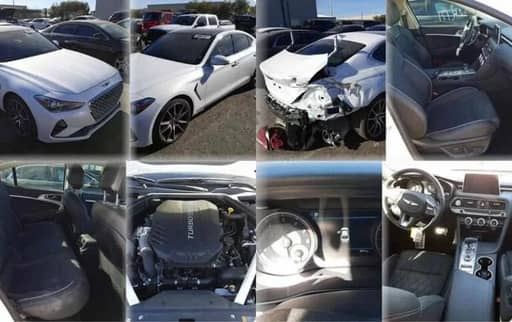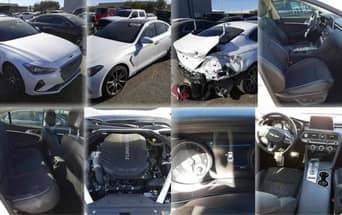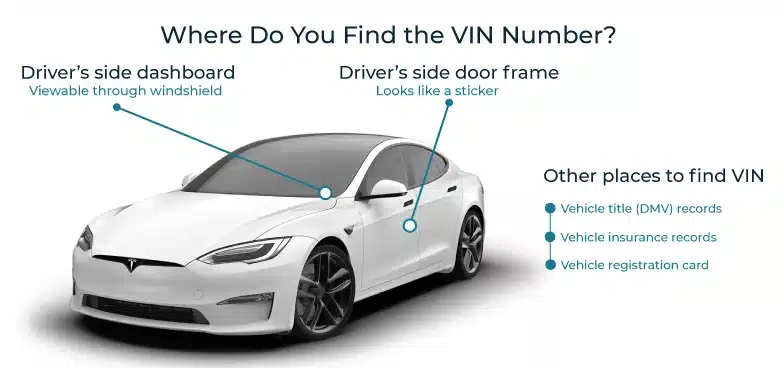VIN Check New Zealand - Fast and Easy
Performing a VIN check in New Zealand helps you discover important details about any used car. You can see past accidents, mileage, ownership, and more. This makes it easier to avoid buying a bad vehicle.
Protect your investment with a New Zealand VIN check!


- Imported vehicle found to have title brand records and mileage discrepancy.
- 3 accident records and severe damages found.
- Vehicle had been stolen in the past with lien and loan records.
Why Running a VIN Check is Important
What is a New Zealand VIN Check?
The Vehicle Identification Number (VIN) is a 17-digit code assigned to every vehicle to facilitate efficient identification. By running a VIN check, you can view serious red flags like past accidents, flood damage, odometer fraud, salvage or rebuilt titles, theft records, and more.
Without a lookup, you could buy a dangerous, heavily damaged, or even stolen vehicle and lose your money.
What Can You Learn from A New Zealand VIN Check
Thinking about buying a used car in New Zealand? A VIN check can uncover the vehicle’s full history — from accident records and ownership changes to hidden damage, theft reports, and more, helping you avoid costly mistakes.
Here’s what you can find in the report:
Accident Check
Some vehicles might appear spotless, but don’t forget to find out whether the vehicle has ever been involved in an accident, had structural damage, or carries accident or damage titles.
Salvage & Rebuilt Title Check
Verify the vehicle’s status to confirm whether it has a clean, salvage, or rebuilt title, which can affect its market value.
Auction History and Photos
Some of the imported items might have been in an auction. Get the legit photos of the car from the auction photos, pricing details, and the vehicle’s details, and see the car’s actual condition.
Stolen Vehicle Check
Ensure the vehicle has never been reported as stolen to avoid legal issues, registration problems, and potential vehicle seizure.
Ownership Records
You can see how many owners the car had, when it was bought, and the location of the past owners.
Odometer Rollback Detection
Be informed about the vehicle’s actual mileage to protect yourself from odometer fraud by the dealer or seller.
Real Case Study: Why VIN Checks Matter?
A buyer in Auckland found a 2015 Mazda 3 online. The car looks spotless and has low mileage. It was advertised as “carefully taken care of,” but the price was too good to be true.
Sample Vehicle Report: JM1BM1W39F1220230
Initial Impression
- Excellent condition
- Low mileage
- Smooth appearance
Critical Findings
- Insurance Loss Record
- Has a branded title
- Outstanding loan/lien not cleared
- Previously reported stolen in the U.S.
- Odometer rolled back
Outcome
- VIN check revealed it was a total loss with a salvage title.
- The odometer was rolled back.
- The car was still titled to an insurance company and reported stolen.
Lessons Learnt
- A clean look doesn't mean a clean history.
- Always run a VIN check—it's your best defense.
- If the deal looks too good to be true, it probably is.
Benefits of Using a New Zealand VIN Check Service
Before you buy a used car, it’s recommended that you do a VIN check to avoid an unpleasant surprise after you get the car home. Here are some benefits you can get with one:
Prevent Salvage and & Flood-Damage Spare Parts
A VIN check helps buyers spot cars written off or damaged by floods, protecting them from buying troubled vehicles.
Verify Auctions
You can view past auction listings and accident records. This will help you understand the vehicle’s condition before it was put up for sale.
Accident History
Check whether the car has ever been involved in an accident to avoid costly repairs and safety issues.
Ensure Clean Title & Legal Ownership
Verify that the car has a clean title and is not stolen or involved in a legal dispute, providing peace of mind before purchasing.
Detect Odometer Rollback
Identify suspicious mileage changes that may suggest tampering, helping you avoid overpaying for a high-mileage vehicle.
Confirm Service & Maintenance Records
Review past maintenance work to determine if the car was properly cared for, which can help prevent future issues.
What our customers are saying
Great and prompt window sticker lookup. Highly recommend. Very happy with the payment, follow-up phone call, and OE Window sticker. Will use again.
Andrew G
Wow. What great service they gave my car. They were very knowledgeable and very clear. I’ve always desired to have this kind of specific information about my Land Rover.
Thanks a lot
Ken Williams
Great customer experience. Worth the effort.
Steve Raley
Explore Our Other Tools
Looking for a different solution? One of these tools might be the answer.
Frequently Asked Questions
Can a VIN checker tell if a car is stolen?
Yes. Once you have decoded the VIN and obtained the vehicle history report, you will see if the car has ever been reported stolen and subsequently recovered.
Can thieves do anything with your VIN?
VINs, intended for tracking recalls, registrations, and other vehicle details, can be misused by thieves. They frequently replace the original VIN plate with one from a legally exported or differently registered vehicle to mask their crimes.
Can you look up a VIN to see who owns it?
Although a VIN can reveal ownership, privacy laws in many areas protect this information, making it accessible only through specific procedures and paperwork.
How to find an NZ VIN number?
To find the VIN, you may check your car’s documentation. You may also inspect these areas in the car: the driver’s door jamb or the dashboard. However, if you are still in the process of buying the car from a dealer or private seller, you may ask the seller to give the VIN details.
Get Your NZ VIN Check Today!
Don’t take risks when buying a used car. A quick VIN check can save you from costly problems down the road. Find out the vehicle’s true history—including accidents, title status, mileage, and more—in just seconds.


